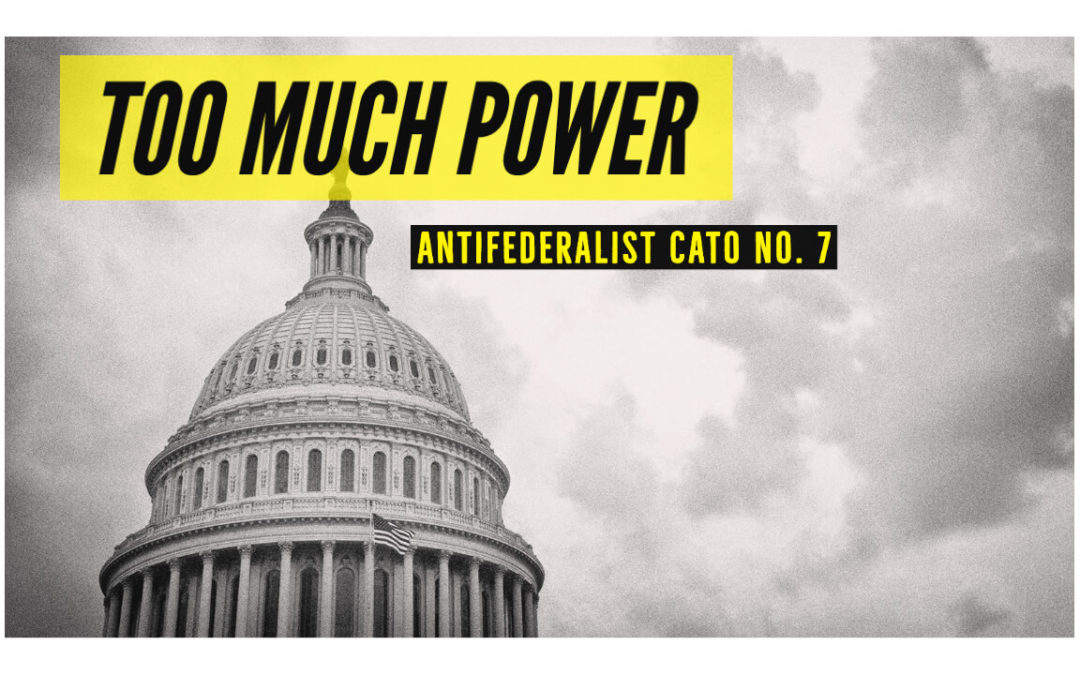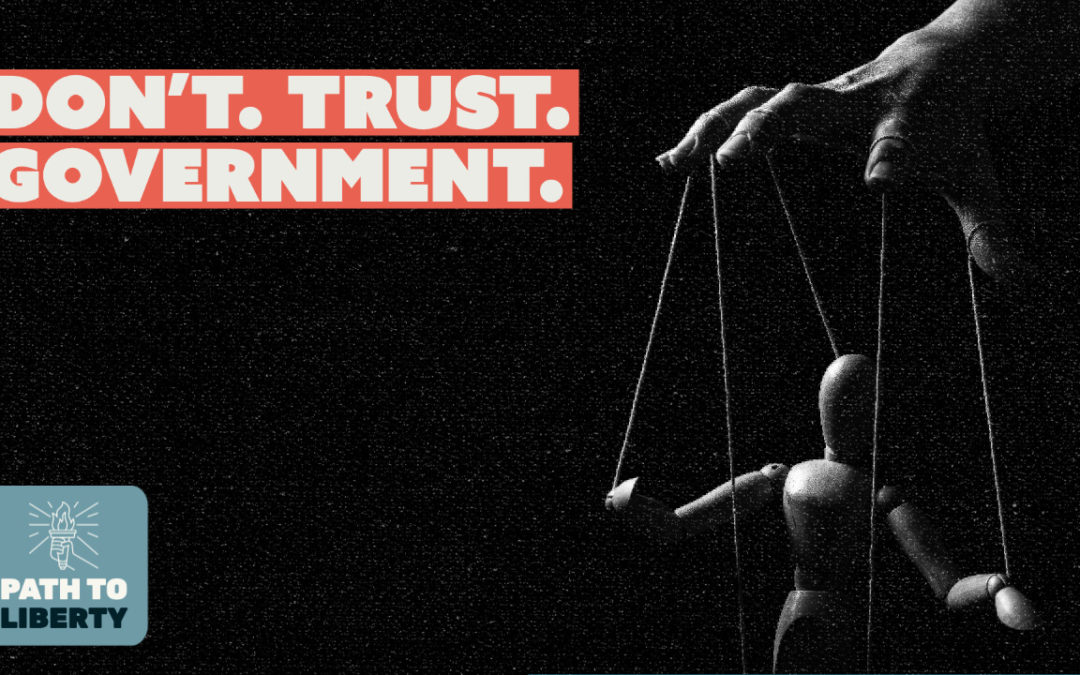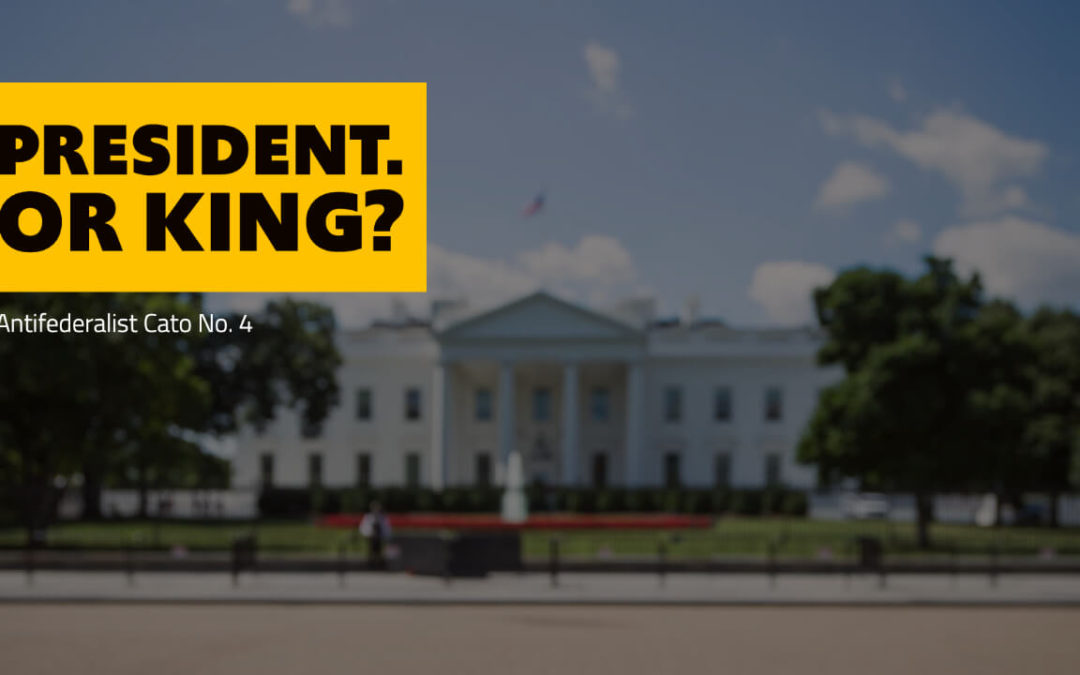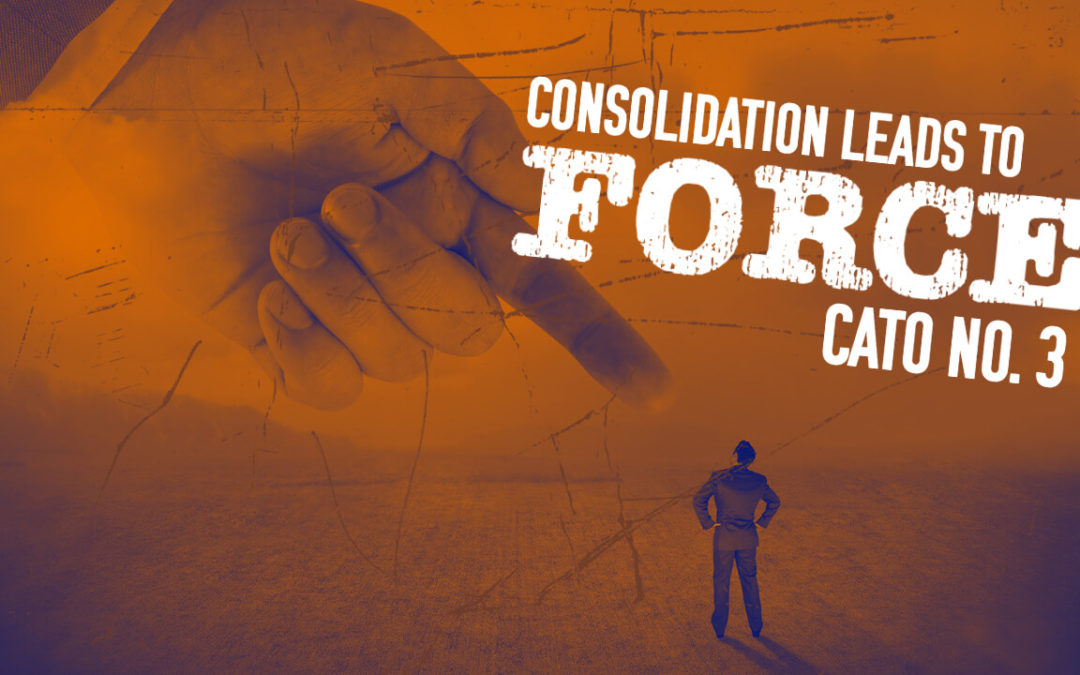


Insupportable Burdens: Antifederalist Cato No. 6
In his 6th paper, Cato predicted direct taxation on individuals in spite of Federalist assurances the government would be able to survive on trade and import duties. He also described the Senate as an aristocracy, and warned that the treaty power would result in...
Don’t Trust Government: Antifederalist Cato No. 5
In his 5th paper, Cato reiterates the issues he has with the structure of the executive branch, moves on to reject claims that a free people would never let their government devolve into tyranny, and then rips into the structure of Congress. He warns the system will...
President or King? Antifederalist Cato No. 4
Cato was one of the first Antifederalist writers to examine the executive branch. He predicted it would “tend either to the establishment of a vile and arbitrary aristocracy, or monarchy,” with a permanent class of elites ruling from on high. Path to Liberty: March 2,...
